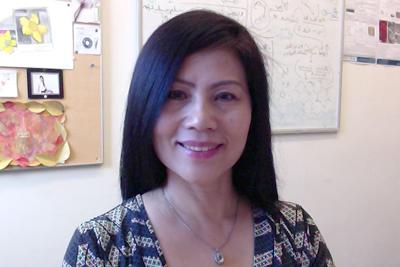Southampton engineers invent low cost oil quality sensors

Researchers at the University of Southampton have developed thick-film sensors that can be deployed as a low cost and real-time engine oil monitoring solution.
The innovative research, led by the School of Engineering’s Professor Ling Wang, has printed working and reference electrodes which can monitor the content of H+ ion in aged oil from within an engine.
The new oil sensor was advanced in collaboration with Shell Global Solutions and will now seek follow on funding to devise electric circuitry to partner the electrodes.
Live data driven by online age monitoring from new sensors would help operators know the exact time that oil would need to be changed, saving the wastage of oil that is changed too early and avoiding inevitable engine damage caused by insufficient lubrication.
“Experiments have been conducted in our laboratory where the electrodes were tested in a range of oil samples with different levels of ages and the results showed a good correlation between sensor responses and oil acidity change,” Ling explains.
“The thick film sensor can measure acidity change of lubricants in real-time. Currently, this can only be achieved using offline lab-based techniques, which involve taking oil samples from engines to labs for analysis. With further development, our technique will be a robust, cheap and real-time oil age monitoring technique.”
Researchers produced the thick-film sensors using screen printing techniques at specialist facilities on Highfield Campus.
The research innovation is the latest example of the University’s world-leading research in tribology, the science of friction, wear and lubrication of surfaces that come in to contact together in motion.
Ling serves as Head of the Engineering and Physical Sciences Research Council supported National Centre for Advanced Tribology at Southampton (nCATS), which recently marked its 10th anniversary with a celebration on Boldrewood Campus.
The distinguished event included the presentation of the British Institute of Non Destructive Testing’s COMADIT prize to Ling in recognition of her outstanding research record in sensor and signal processing for condition monitoring.